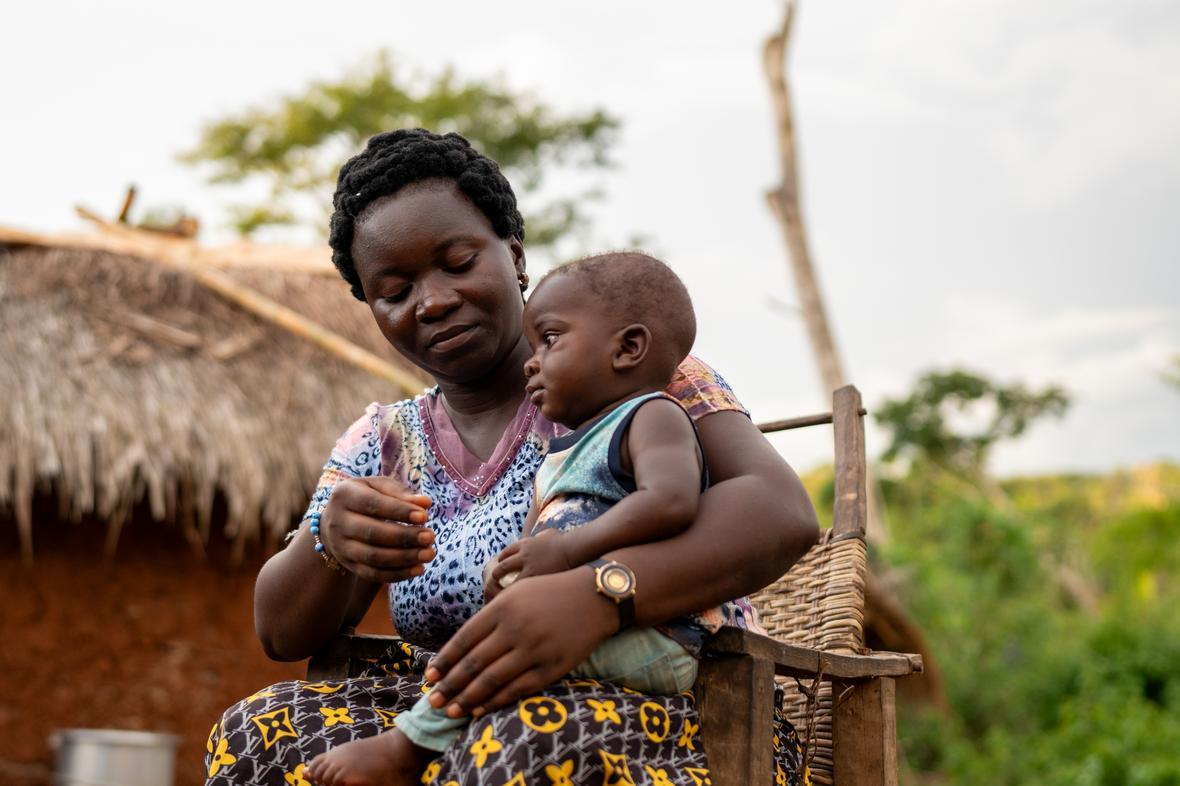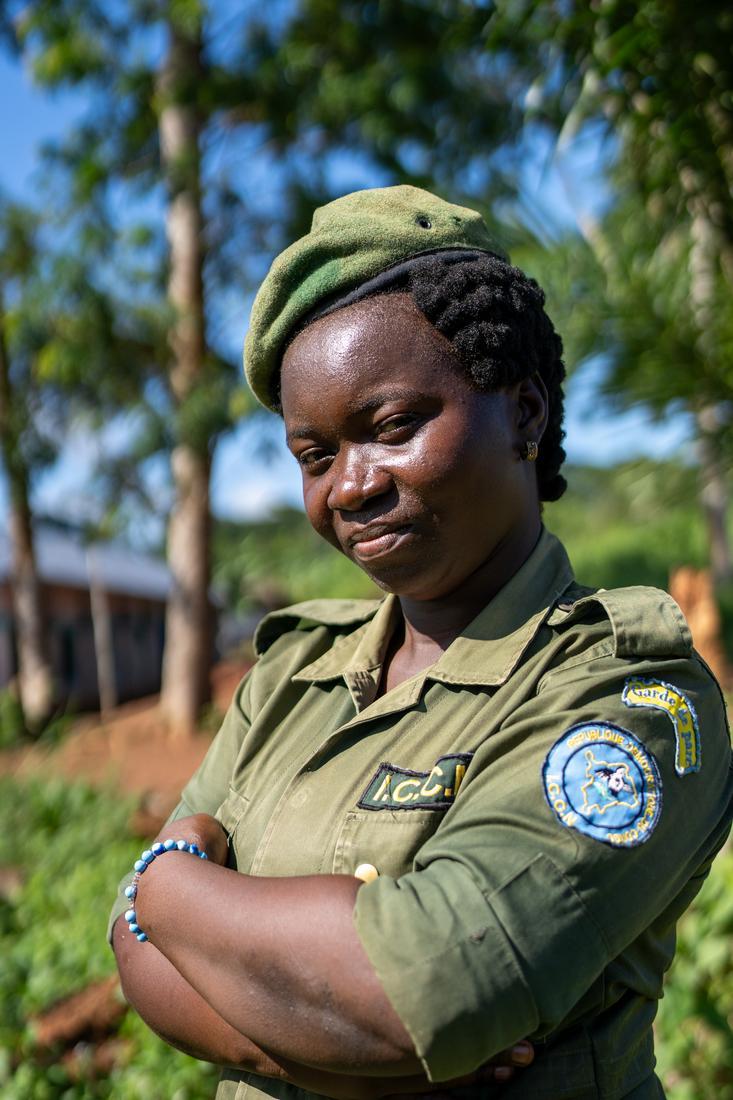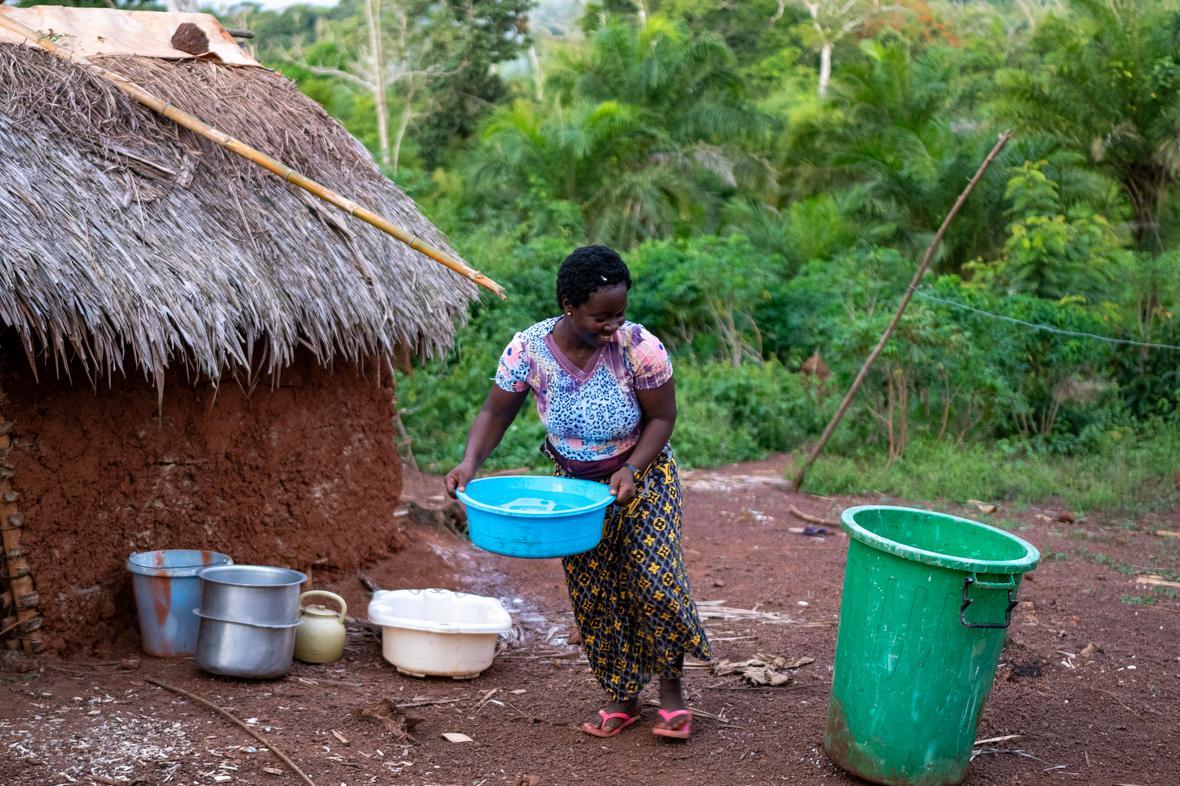Women on the Front Lines: Protecting Africa’s Wildlife, Preserving Its Future

Isabel, a mother of three, holds her son at home. ©Ariel Gakunga/AWF
In the remote Bili-Uélé landscape of the Democratic Republic of Congo, a new generation of conservation leaders is emerging—women who are not only mothers and caregivers but also protectors of Africa’s natural heritage.
Among them is 30-year-old Lakili Anja Isabel, a dedicated eco-guard working in one of the most ecologically important and challenging terrains in Central Africa. As a single mother of three, Isabel is reshaping what leadership in conservation looks like.

Isabel, an eco-guard since 2022, advocates for more women to break into the ranger industry. ©Ariel Gakunga/AWF
Originally from Bondo, a territory that makes up the western half of the Bili-Uélé landscape, Isabel joined the eco-guard force in 2022 through a recruitment drive led by the Congolese Institute for Nature Conservation. Her motivation was simple yet powerful: to ensure that her children—and future generations—can witness the wildlife that shaped her own childhood. “Becoming an eco-guard was my way of giving back to nature and protecting the future,” she says.
Her passion for animals began early. She grew up caring for livestock at home and carried that same sense of responsibility into her role as an eco-guard. Supported by AWF through funding from the European Union, the project’s main goal is to reduce biodiversity loss while improving the quality of life of local communities living in the Bili-Uélé landscape. Isabel received training in biomonitoring, data collection, and analysis—skills that have strengthened both her confidence and her impact.
Her work is not without challenges. Eco-guarding requires physical stamina and resilience, but women in the field also face cultural and social hurdles, including gender bias and limited access to opportunity. Yet, Isabel and her peers are changing the narrative. They are proving that conservation is not just about protecting land and species—it’s also about equity, inclusion, and long-term community well-being.
Senior eco-guard and mentor Bijoux Wawali recalls her initial doubts: “When I first saw Isabel, I didn’t think she would complete the training. But she showed incredible strength and commitment. She changed all our minds.”
That strength extends beyond the field. During community outreach, Isabel’s warmth and empathy make her a trusted voice. Her maternal instincts, often seen as a liability in male-dominated sectors, have become a powerful asset in conservation work. “She educates, not lectures,” a colleague notes. “That’s what builds real trust.”

Isabel carries out household chores at her home. ©Ariel Gakunga/AWF
Even in her professional setting, motherhood remains central to her identity. She brings her young son to the office during breaks—balancing her roles with grace. Her example is inspiring more women in the region to see conservation as a viable, meaningful career.
“There are now more than a dozen young women waiting for recruitment—all encouraged by stories like Isabel’s,” says Guillaume Mpia, Deputy Site Manager of the Bili-Uéré Hunting Domain, a protected area in the landscape. “She is proof that conservation needs women at every level.”
Isabel actively encourages the recruitment of more female eco-guards, noting that their presence strengthens the team’s ability to respond to community needs and conduct gender-sensitive operations with dignity and respect. “More women on the team would make our work stronger, more balanced, and far more effective,” she says.
At AWF, we believe that conservation is not just a biological mission—it’s a human one. Women like Isabel are redefining what it means to protect Africa’s landscapes and wildlife. Their stories show us that sustainable conservation depends on inclusion, empowerment, and the courage to lead.
Read more about Isabel's story in an interactive story map about Bili-Uélé